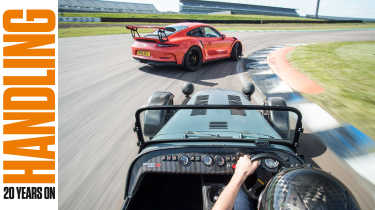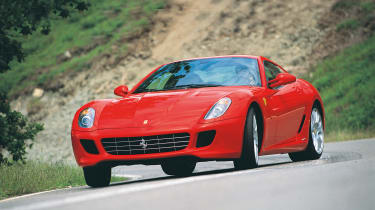Ask the experts: what makes a great handling car? The verdict
John Barker gives his closing remarks after 30 years as one of the world's most experienced journalists and engineering consultants
As we found 20 years ago, there is no unanimous view on the essential ingredient for a great-handling car, but a significant four of our seven engineers cite linearity – predictability and consistency of response. Kershaw, Becker, Schebsdat and Unsworth think this is the key behaviour of a great-handling car. Becker adds to this feedback to the driver, which Leiters and Pook have as their key component.
Not surprisingly, most felt that a bad-handling car couldn’t be fun. The exception was Becker, who felt the Series 1 Elise 190 VHPD was a challenge with reward – a car that the skilled could exploit at the limit. A couple of others were prepared to make a qualified exception, when the ‘bad’ handling was a result of a rear-drive car having far too much power, and there was a shout-out for the lift-off oversteer of ’90s hot hatches, too.
Most of us can relate to both of those. And the fact is that, unlike 20 years ago, today’s engineers can build cars that are over-powered or keenly agile because electronic stability control can contain them. In our original feature, Mike Cross and Dirk Schoysman rightly predicted that ESC would be ‘the next big thing’, and its continued refinement is the reason why we now have ‘ordinary cars’ with what 20 years ago would have been supercar levels of horsepower. The contribution of tyre performance, which has ceaselessly improved, should take some credit too.
There is general agreement that the next big thing will be more sophisticated control of the chassis and its integration with the rest of the vehicle, with less of the traditional compromises (Landreau), some level of prediction (Becker), and greater degrees of intervention, not just from ESC but other control systems that are in development for autonomous motoring (Schebsdat).
Will there be such a thing as an electric vehicle for enthusiasts? Ferrari’s Leiters thinks this is a question for other car makers, suggesting Maranello has other plans, while Landreau says enjoying an EV would require enjoying ‘very linear acceleration… silence or a different sound’, and technology to mitigate the mass, i.e. torque vectoring.
Elsewhere, there’s a lot of enthusiasm for the EV, particularly for being able to ideally place the heavy components – low down and between the axles. They can be ‘amazingly engaging’ (Unsworth), have the potential to be ‘great fun’ (Schebsdat), and if they start with the same principles of any good-handling car – linearity – a good EV will be brilliant, says Kershaw. Pook, who has driven Jaguar’s I-Pace eTrophy racer, adds that you quickly forget you’re driving an electric car.
Promising, then. I wonder what we’ll think looking back in another 20 years?




